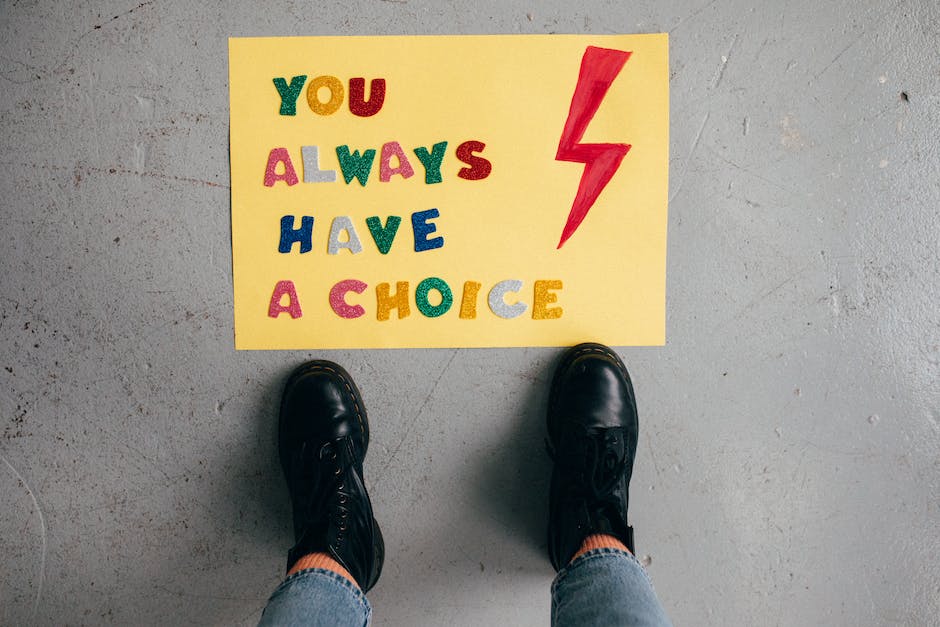If you realize that your eating habits have changed or you feel that your body does not look right, it may be time to talk about what is going on. It’s very important to see a doctor for this so that proper treatment can begin.
Eating disorders are serious mental health conditions that typically start in adolescence. An individual with an eating disorder will often develop perfectionist tendencies and spend a lot of time thinking about how they eat. They may also exercise frequently to manage their food intake or use of supplements like vitamins and minerals can become part of the habit.
Many people make comments about the way that someone with an eating disorder looks, but what really matters is whether they are living a healthy life. People who suffer from disordered eating sometimes go through periods where they seem to recover, but then things return to before.
It is extremely difficult to tell if someone has an eating disorder unless they come out and ask for help. For example, if you notice them spending lots of money on expensive clothing or dieting products, it could be related to shopping behaviors associated with eating disorders.
If you think that someone you know might have an eating disorder, here are some symptoms to watch for. Make sure to discuss this with them directly to confirm that you both believe that there is something wrong.
Seek a doctor

If you realize that your eating habits have changed or that you are not able to eat at all, it is important to see a doctor. It may be tempting to try to treat this yourself, but this can sometimes make things worse for you.
You do not want to self-treat because there may be underlying psychological issues causing your body to use food as a way to deal with stress.
If you notice any of the following symptoms in relation to your disorder, see your doctor right away:
feeling very hungry even when you eat enough food
missing work due to hunger
eating too much or too quickly
losing weight rapidly
feelings of depression or anxiety while eating
It is also important to see your doctor if you feel guilty about how you have been treating your body. This feeling will likely go away once you understand what has helped you address your eating disorder.
There is no one solution that works for everyone, which is why it is so hard to help someone who has an eating disorder.
Connect with a support group

If you realize that your eating habits have gone too far, it is important to connect with other people who are going through the same things as you.
There are many online forums where you can find supportive groups for anyone suffering from any kind of disorder.
These communities vary in size depending on the type of disorder, but they all share one thing: a desire to help others who feel the same way they do.
Many of these sites offer free services, so there is no cost involved using them. It is worth looking into because you could make some valuable connections!
The most important thing to do next is to come out of hiding and talk about your disease. This will take time, but talking about what you struggle with can give you much-needed self-confidence and hope.
By sharing your experiences with weight loss, binge eating or purging, you may be able to get tips for staying healthy and learn more about how common this problem is.
Some diseases go away without treatment, but dieting and exercise are usually the best approaches to stop an eating disorder.
Practice meditation

In addition to practicing yoga moves, meditation is a great way to work on your mental health. Not only does it help reduce stress, but it also helps with sleep quality and overall mood regulation as well.
Meditation can be done anywhere, at any time. Some people start by sitting down and focusing on their breathing before adding other things like thoughts or images to the mix.
There are many types of mediation, so choose one that you feel comfortable doing in order to get the most out of it.
Some examples include focused breathing, thinking about something for a few minutes, letting all the worries from the day go, and repeating a word or phrase.
Many people begin meditating for twenty minutes every morning and/or night. Try not to skip a session otherwise your body will become dependent on the ritual!
Does anyone around you know how to do this type of meditation? If yes, ask them to teach you if you’re struggling. There are many free online resources as well.
We would recommend starting small and just trying to spend five minutes each day. Keep building up your time until you can achieve twenty.
Eat more often

For people with eating disorders, feeling hungry is a major challenge. Because you are trying to eat as little food as possible, it can take hours for you to feel full.
When you try to eat, you may find yourself distracted by your thoughts about whether or not you have enough food. This fear of hunger can make it difficult to enjoy what you do manage to eat.
Many people who suffer from binge-eating disorder (BED) will eat very quickly, which makes them likely to start looking for ways to stop eating before they have eaten enough.
This could mean grabbing a few snacks while shopping, buying one meal at a restaurant, or drinking only water or juice until you are completely finished.
Eat more slowly

One of the biggest triggers for eating disorders is having hungry or hunger cues in your life. If you are the type that waits until you’re fully satiated before you eat, then this can be a challenge.
If you work long hours, you may need to make time to prepare food ahead of when you normally would have eaten, or get into the habit of taking snacks so you don’t feel out of place while socializing.
Alternatively, there are apps like Time Out which allow you to create timers for different activities, including meals. You could use it to help regulate your meal timing!
You can also try thinking of something other than food – perhaps a movie you’ve been wanting to watch- as a way to distract yourself from your appetite.
Practice yoga
Yoga is one of the most popular forms of exercise today, with people practicing it everywhere from studios to outside in natural environments. Not only does yoga improve your overall health by strengthening your muscles and balance system, but it also teaches you how to manage your stress levels.
Yoga can help you deal with eating disorders. A recent study conducted at the University of Texas found that yoga may be effective in reducing symptoms of binge-eating disorder (BED).
Binge eating is when you eat more than normal during a limited time frame – usually less than two hours – followed by a feeling of regret for what you have done. This can then lead to overweight or obesity due to frequent trips to the fridge or store to make up for it.
Practicing yoga can reduce the urge to engage in this behavior by altering brain chemistry. The researchers found that those who practiced yoga had reduced levels of serotonin — a neurotransmitter linked to moods such as happiness, sadness, and depression.
Decreasing serotonin activity can cause feelings of anxiety or fear to increase, which could explain why some patients reported their experiences were easier after doing yoga.
However, there are no studies investigating whether yoga is helpful for individuals with BED who do not suffer from other mental illnesses. Therefore, we cannot say for sure if it works for this population.
Seek help from a friend

Even if you think your eating habits are just normal, talking about what you eat with someone who knows you well can be helpful in identifying potential symptoms of dieting or compulsive eating.
It’s also important to note that some people develop eating disorders at different stages. Some start restricting their food intake and then move onto other unhealthy behaviors like purging or excessive exercise, for example.
So, even though it may feel scary to ask around about possible signs of disordered eating, don’t hesitate to do so. It could save your life.


